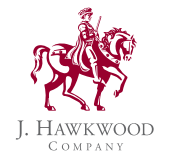What do leadership, psychology, fiscal responsibility and successful retrieval of a kidnapped baby have in common? Anthony Craft, MAcc, ’12.
Co-founder/general manager of a business consulting company in West Bloomfield, Mich. Craft has the knowledge and life experiences that make him a valuable asset.
Craft’s company specializes in leadership development and coaching/mentoring, as well as negotiation training and competitive (sports) psychology for business leaders and team hiring.
He doesn’t do it alone. “A successful business is never about one person,” says Craft. “It’s about the team.”
And Craft put together a highly effective one. The problem-solving unit covers all angles – military, medical, corporate and sales/marketing.
A medieval history buff, Craft named the company “J. Hawkwood,” after military commander Sir John Hawkwood, a 14th Century Englishman who found his niche as a savvy, solutions-oriented military commander in Italy.
Likewise, Craft found his niche in the marketplace. The idea took root as Craft and one of his business partners were finishing one of their free leadership development workshops, and a patent lawyer approached them.
“She’d been to a week-long leadership development conference and said she hadn’t learned nearly what she did in the few hours spent with us,” he says. “I thought about starting a company to assist professionals in our own backyard.”
Change agent
Prior to earning his master’s in accounting, Craft received a bachelor’s degree from Michigan State University in both industrial/organizational psychology and criminal justice. He also served 12 years as a special agent in the United States Army Criminal Investigation Command (USACID).
Craft received a national award from USACID for investigative (interviewing/negotiation) excellence in the recovery of a two-day-old infant kidnapped by a woman who wanted the baby but abandoned him once her picture appeared on TV. The baby was recovered from a box in rainy, chilly Michigan weather – feverish but alive.
Today, Craft puts those negotiation skills to work for his clients. “Whether interacting with employees or clients, leadership aptitude is key to business success,” says Craft. “Strengthening these skills affects productivity and long-term success.”
Among the principles used with clients, Craft describes Simon Sinek’s “Golden Circle” of human motivation. Essentially, the idea is people don’t buy what you do; they buy why you do it.
Plugged in
Craft and his partners customize their methodology to fit the individual or organization. They also meet their clients where they are.
“We’ve shown up at 2 a.m. for a nurse manager’s staff meeting,” he says. “We go where needed.”
Although it may be human nature to avoid anxiety and shy away from one’s weaknesses, a business leader can’t afford to. “If you’re blasting it off the tee but stink at putting, you need to focus on putting,” he explains. “Otherwise, there’s no overall improvement. It’s the same with business.”
One of his clients struggled with assertiveness; he prepared her with role-playing exercises. Another client found it difficult to negotiate prices, so he took her to garage sales to practice; later, he accompanied her to negotiate with a vendor.
“Good leaders train followers, and then release and trust,” Craft says. “The team has to grow together.”
When it comes to customer satisfaction, Craft learned valuable lessons working at Hewlett Packard and WorldCom. “One of the things frequently advised regarding technical support is the ‘seven-second rule,’” says Craft. “Supposedly, if you answer every phone call within seven seconds, you’ve done a good job.”
But not so fast. “That measurement doesn’t address taking care of the customers,” Craft explains. “Did you effectively prioritize calls? How many customers were satisfied with your service? That’s what needs to be evaluated.”
Craft and his partners invest the time to satisfy their clients.
“After working with us, if new problems arise or they need refreshers, we’re available,” Craft says. “They receive unlimited follow-up.”
Craft says they’re satisfied when their clients are. “What matters is that call from a client who’s excited to tell us about closing a deal at a negotiated price.”
 Accounting for success
Accounting for success
No matter how useful a company’s product or service may be, it’s still about the bottom line.
“Accounting is the lifeblood of any organization,” says Craft. “The business will fail if nobody’s watching the money.”
An SBA Dean’s Scholar, Craft feels his time at Oakland University was well-spent learning the intricate finance details critical to maintaining a business. This encompasses risk and operations management; financial planning, analysis and reporting; forecasting and budgeting; fiscal accountability; regulatory compliance; and sales and marketing.
“Oakland’s business professors brought real-world experiences into the classroom,” Craft says. “They translated book knowledge to on-the-job realities, and that’s been extremely helpful.”
Craft also values networking relationships cultivated through Oakland. “Business is word-of-mouth,” he says. “As students, we had an opportunity to establish a network. When others know what you do, they’re your best referrals.”
With Craft’s busy schedule, it’d be understandable if he’d prefer to hibernate in his limited down-time. But Craft is more like his company’s namesake than one might expect.
Decked out in knight’s gear and wielding a sword, he occasionally participates in medieval reenactments. “You can get roughed up,” Craft admittedly laughs, “but I love it.” Instead of seeing life as a series of problems, Craft sees a challenging adventure filled with winnable battles.
By Mary Gunderson-Switzer


 Accounting for success
Accounting for success